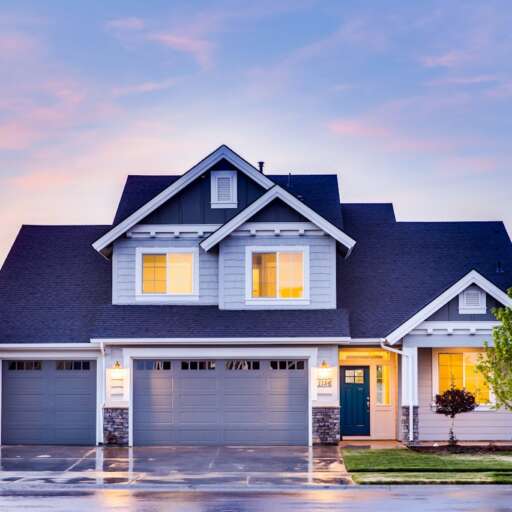Table of Contents
- 1 Key Takeaways
- 2 The Importance of Fencing in Contemporary Home Design
- 3 Popular Fencing Styles to Consider
- 4 Choosing the Right Materials for Durability
- 5 Smart Technology in Modern Fencing Solutions
- 6 Eco-Friendly Fencing for Sustainable Living
- 7 Creating Beautiful, Secure Boundaries
- 8 Regulatory Insights for Homeowners
- 9 Emerging Trends in Fencing Design
Key Takeaways
- Explore various modern fencing styles that enhance both aesthetics and privacy.
- Discover materials that offer long-lasting durability for outdoor spaces.
- Understand the integration of technology for enhanced security.

The Importance of Fencing in Contemporary Home Design
Fencing is more than just a boundary-maker; it’s a vital component of a home’s overall design. In today’s architecture, fencing contributes significantly to both functionality and curb appeal. It outlines the perimeter of your property, ensuring privacy and security while also serving as a decorative element that complements your home’s design. Homeowners opting for the right residential fencing solutions can tailor these benefits to enhance their living spaces. With many styles and materials to choose from, fences can transform outdoor spaces into personal sanctuaries where aesthetics meet utility.
Popular Fencing Styles to Consider
The design of your fence can dramatically influence the look of your property. Popular styles range from sleek and minimalistic to intricate and traditional, each offering unique appeals. For instance, modern designs often embrace simplicity with clean lines and neutral colors, while traditional styles may feature ornate details and rich textures. Whether you’re inspired by the simplistic beauty of horizontal slats or the rustic charm of a picket fence, there’s a design to suit everyone. By exploring modern fence design trends, you may find a creative spark to transform your yard into a visually stunning landscape.
Choosing the Right Materials for Durability
Materials make a lasting impact on the durability and upkeep of your fence. Wood, vinyl, and metal are classic choices — each with distinct advantages. For example, cedar is naturally resistant to decay and offers timeless beauty, while vinyl provides a maintenance-free option with its resilience to weathering and rot. Metal options like aluminum are strong yet stylish, adding a modern touch that blends with various architectural designs. Many homeowners also explore hybrid materials that combine durability with aesthetic appeal, ensuring their fences withstand the test of time. By selecting the right materials, you enhance the longevity and beauty of your fence.
Smart Technology in Modern Fencing Solutions
With the evolution of technology, fencing solutions are becoming smarter, enhancing security and convenience for homeowners. Technologies like automated gates, smart locks, and motion-activated lighting can seamlessly integrate into your fencing system. These innovations allow for increased control over property access through smartphone apps and remote control capabilities. For example, smart locks enable you to secure gates from afar, ensuring peace of mind when you’re not at home. By embracing smart home enhancements, you elevate both the security and functionality of your outdoor space, transforming fences into more than just static barriers.
Eco-Friendly Fencing for Sustainable Living
Sustainability is at the forefront of a lot of homeowners’ minds, pushing the demand for environmentally friendly fencing solutions. These options not only decrease environmental impact but often come with added benefits like unique aesthetics and strong durability. Bamboo, reclaimed wood, and recycled metals are popular choices for those looking to create an eco-friendly haven. Bamboo is prized for its rapid growth and renewability, while reclaimed wood offers character and a sense of history. Utilizing these sustainable materials reduces your carbon footprint and supports broader ecological goals. By opting for green materials, you can create a fence that is as earth-conscious as it is beautiful.
Creating Beautiful, Secure Boundaries
The challenge of creating a fence that is both secure and attractive is one that many homeowners face. An effective solution is to incorporate landscaping elements that complement your fencing. For example, climbing plants can soften harsh lines and introduce greenery, while strategically placed shrubs or trees can add layers of privacy. Effective design doesn’t have to compromise on beauty; with thoughtful planning, a fence can become a standout feature of your garden while enhancing security. The right approach not only fortifies your property but also enriches your outdoor environment, making it a reflection of your style and need for privacy.
Regulatory Insights for Homeowners
Before you embark on your fencing project, understanding the regulatory landscape is crucial. Regulations vary widely based on location and can impact aspects like fence height, materials, and placement. Ignoring these can lead to costly fines or the need for alterations post-installation. Successful projects often begin with diligent research and consultation with local authorities to ensure compliance with all necessary codes. These steps not only prevent legal headaches but also promote neighborly harmony by respecting shared boundaries and community standards.
Emerging Trends in Fencing Design
The fencing industry is constantly evolving and influenced by changes in material technology, aesthetics, and functionality demands. One notable trend is the incorporation of vertical gardens, which bring nature onto the very structures that define our gardens. Additionally, synthetic materials are becoming more prominent due to their improved durability and lower maintenance needs. Staying informed about current fencing trends allows homeowners to make inspired decisions that reflect modern sensibilities and personal preferences. As design continues to push boundaries, the future of fencing promises to blend tradition with innovation, creating possibilities as expansive as your imagination.

